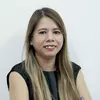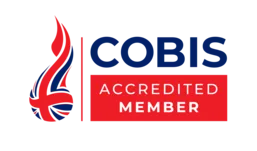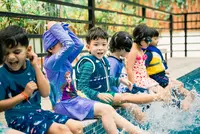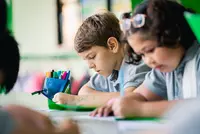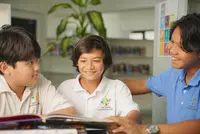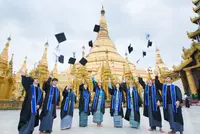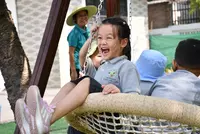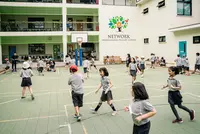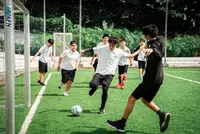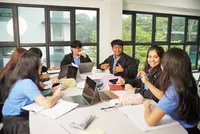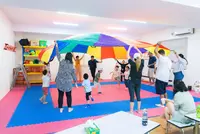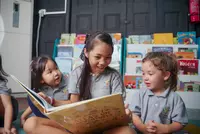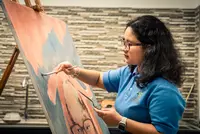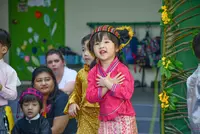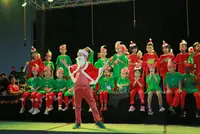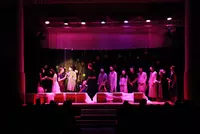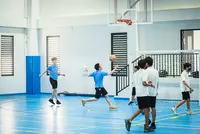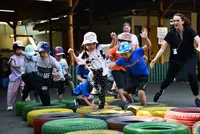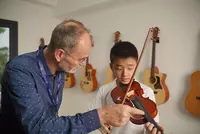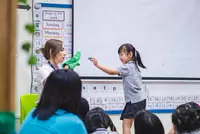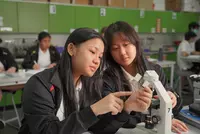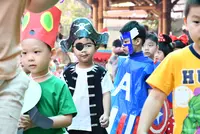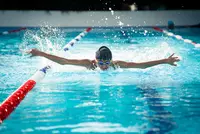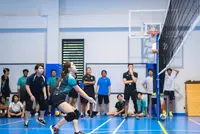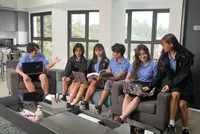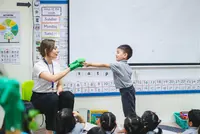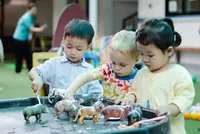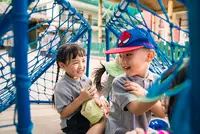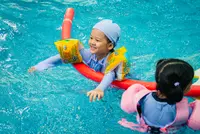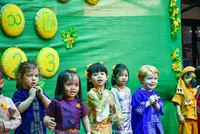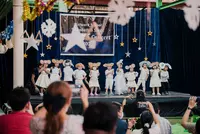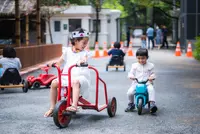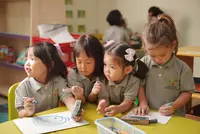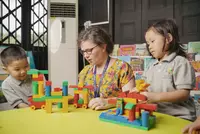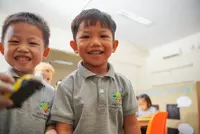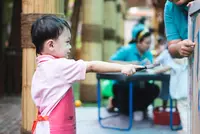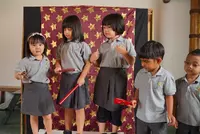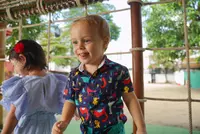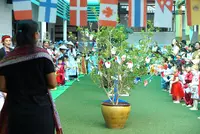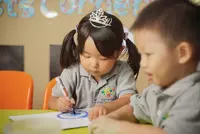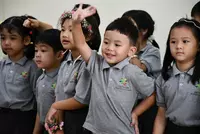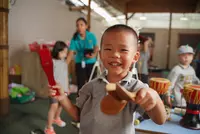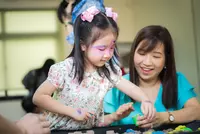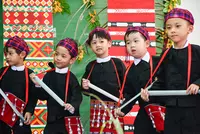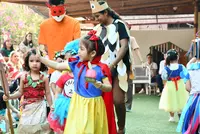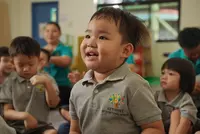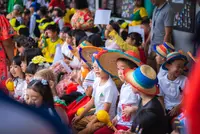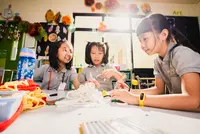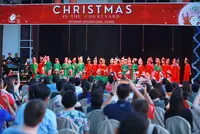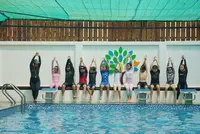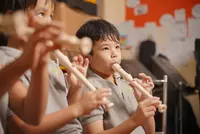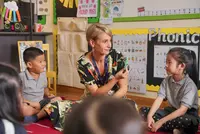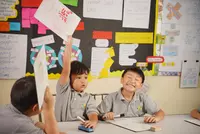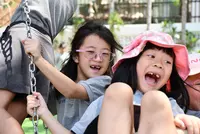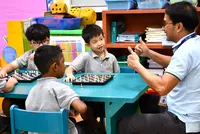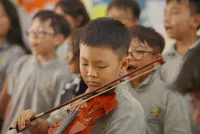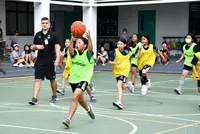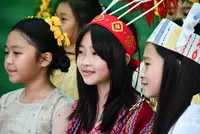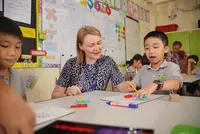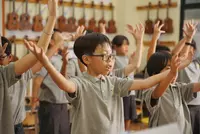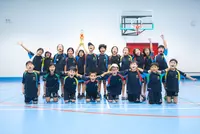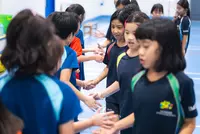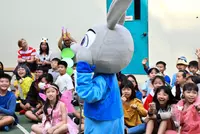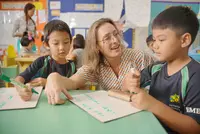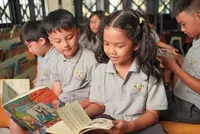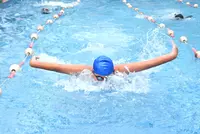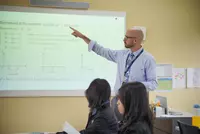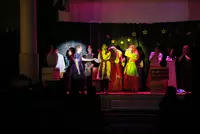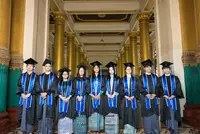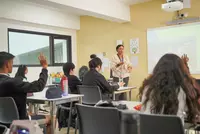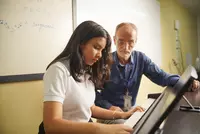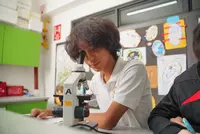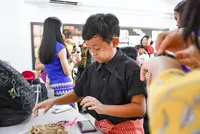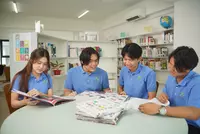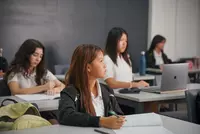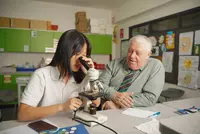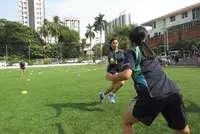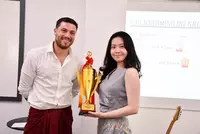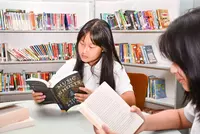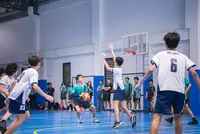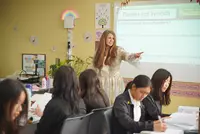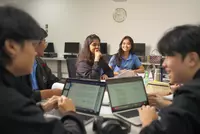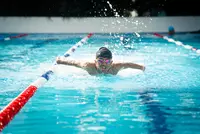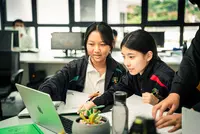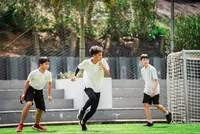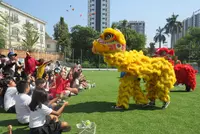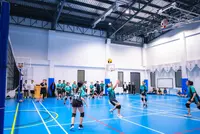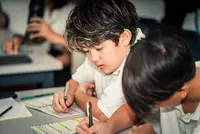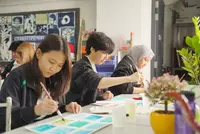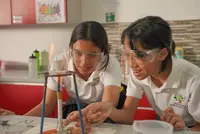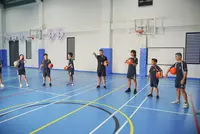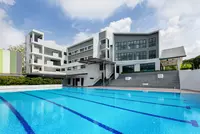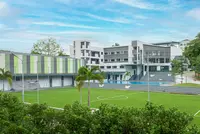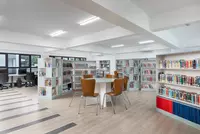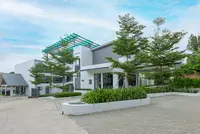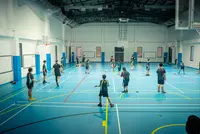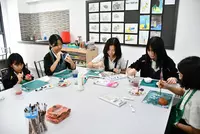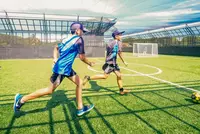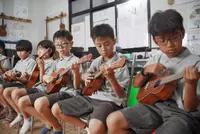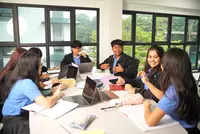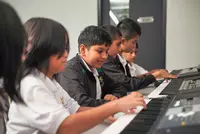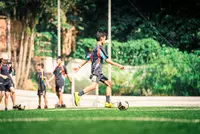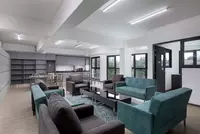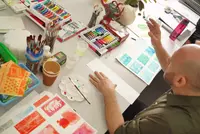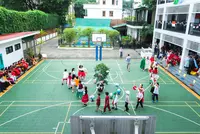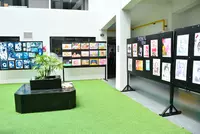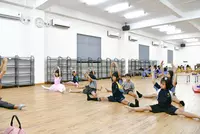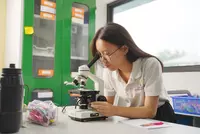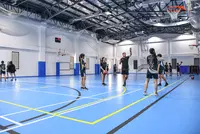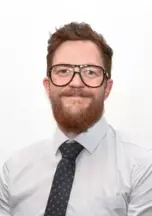
Stephen Buckland
Principal
Network is the leading British international school in Yangon and the first to be accredited by BSO (British Schools Overseas). An all-through school, we educate students of approximately 25 nationalities between the ages of 2 to 18 years, from our flexible Early Years programmes up to Primary, Secondary and Sixth Form. Our mission is to deliver an outstanding education in a world full of opportunity, where our students are equipped to lead rewarding lives, forge successful futures and make their mark on society.
We believe that outstanding academic achievement is as important for future success as the need to develop character and a lifelong love of learning. Our approach is holistic and student-centred, and our BSO-accredited curriculum blends innovative teaching practices with small class sizes, complemented by an enriching extra-curricular programme of clubs, trips and activities. This balance creates a tailored learning experience for our students which encourages and supports them to explore their passions.
Network International School students go on to achieve great success: in 2024 our students were awarded over 60% A*/A grades in their IGCSEs and 40% A*/A grades in their A Levels, and secured their first-choice courses ranging from Medicine to Engineering at some of the world's leading universities. Underpinning this success is our partnership between teachers, parents and the wider community, through which we ensure our students are empowered to make a difference.
We have organised the information available for this school into 10 sections and 42 questions. Click or tap on the name of each section to read more.
|
Number of students
|
800
|
|
Number of nationalities represented in the school
|
24
|
|
Most common nationality
|
Myanmar
|
|
Ratio of local students to international students
|
80-20
|
|
Native English speaking teachers
|
Yes. We are a UK curriculum school, and the teachers are mainly from the UK or have experience with the UK curriculum prior to joining our school.
|
|
Language support for students not fluent in English
|
We offer ESL support where appropriate for students who require additional language help to access the curriculum.
|
|
Additional language classes offered by the school
|
Myanmar for all students from EYFS up to Year 9, French at Secondary up to Cambridge Advanced Level, and Mandarin extracurricular activities in the Primary and Secondary phases
|
|
Max. number of students per class
|
24
|
|
Average number of students per class
|
20
|
|
Does the school employ teaching assistants?
|
Yes. In the Early Years and Primary sections, there are two teaching assistants in each classroom. In Secondary, there is one teaching assistant in each subject classroom.
|
|
Use of technology in the classroom
|
The school has technology suites in the Early Years, Primary and Secondary phases. Primary and Secondary students are allowed to bring in their own device to support their learning.
|
|
Is the school ready to use virtual classrooms when needed? (e.g. teaching lessons online if the school is closed, e.g. during COVID-19 closures)
|
Yes. We are very experienced in online learning programmes in all phases.
|
|
Do students practice religion at the school? What religion?
|
No
|
|
How does the school accommodate non-religious students or students of a different religion?
|
N/A
|
|
External examinations or assessments available
|
The Progress Test in Maths and English for Primary students, Cambridge IGCSE and Cambridge Advanced Level qualifications in the Secondary phase.
|
|
Results in these examinations
|
In the Primary section, students perform better than students in the UK in reading, writing and Maths even though many are second-language speakers. In IGCSE and A Level examinations year on year, students achieve better progress rates than their counterparts in the UK. Further details are available on our website.
|
|
Do teachers assign homework to their students?
|
Yes
|
|
Approximate hours of homework given
|
In the Primary section, students receive 1 hour of homework per week. In the Secondary section, students in Years 7-9 receive 4.5 hours of homework per week. In Years 10 & 11 (IGCSE Qualifications) students receive 7 hours of homework per week, and in Years 12 & 13 (Advanced Level Qualifications) students receive 8 hours of homework per week.
|
|
Percentage of students who pursue further education post-graduation
|
100%
|
|
Dedicated staff/programs for students with special learning needs
|
The school has a SENCo that organises support and programmes for any students with additional learning needs.
|
|
Learning support offered
|
This can range from ESL support to specific learning programmes such as 'Nessie' and speech therapy to Individual Education Plans.
|
|
The school supports gifted, able and talented students
|
As a UK school, all students are provided for including gifted and talented through differentiation in the classroom.
|
|
Student access to education psychologist
|
Yes, where appropriate.
|
|
Entry evaluation for students
|
Yes for all phases.
|
|
Brief description of entry evaluation required
|
Early Years admissions participate in a classroom observation session. In the Primary school, admission students participate in classroom observation, interview with the Head of Primary and CAT4 online test. In Secondary school, students take the CAT4 online test and interview with the Head of Secondary.
|
|
Waiting list
|
Yes, in some year groups throughout EYFS to Secondary.
|
|
Deadline for registration (new academic year)
|
There is no deadline as such, but students will need to have completed the evaluations.
|
|
Students can join after academic year begins
|
Yes, if there is still a place available and students have passed the entrance test.
|
|
School start time
|
Early Years 09:00 am
Primary and Secondary 08:00 am
|
|
School finish time
|
Early Years Foundation 1 12:00 pm or 14:00 pm. Early Years Foundation 2 & 3 14:00 pm
Primary 14:50 pm
Secondary 15:00 pm
|
|
Supervised care before/after school
|
The school provides supervision for siblings in different phases who have separate finish times such as Early Years and Primary.
|
|
School bus service available
|
We have a free bus service that runs between our two campuses and a door-to-door bus service to get students to and from school each day directly from home.
|
|
School provided lunches
|
No
|
|
Food alternatives for special dietary needs (ie. vegan, kosher, halal etc)
|
N/A
|
|
Uniform required
|
Yes from age 3 upwards.
|
|
Facilities at the school
|
We opened a brand new Secondary campus in August 2022 which includes; UK science laboratories, full size sports hall, competition size swimming pool, football pitch, dedicated Sixth Form Centre, Library, ICT suites and classrooms. The Early Years and Primary schools have their own libraries, ICT suites and sports facilities.
|
|
Sports facilities at the school
|
Sportshalls, football pitches, basketball court and swimming pools.
|
|
Qualities and characteristics best defining the school
|
Network International School Yangon, Myanmar was established in 1996 by Mrs Carole Kyaing, an ambitious, enthusiastic and experienced educator, to become the first British International School in Yangon.
At Network, we foster an inclusive and nurturing environment where every student feels supported and valued. We are a family-oriented community that promotes positive relationships and a collegiate spirit among students, staff, and parents alike. We are committed to providing a holistic education that empowers our students to reach their full potential, both academically and personally. Together, we strive to create a learning environment that inspires curiosity, fosters respect, and celebrates diversity. We are deeply committed to our shared goals and dedicated to providing a safe and secure space for all.
|
|
Teaching approach of the school
|
We aim for the very best in classroom education, enabling all students to achieve success and gain valuable knowledge and skills. A wide range of techniques, tailored to meet the needs of all students are used in lessons, and we strive to develop transferrable skills across the curriculum.
In every lesson we expect to:
• Stretch, challenge and support our students
• Inspire interest and curiosity
• Develop reading, writing and mathematical skills
• Provide opportunities to work in groups as well as developing independence and resilience
• Build confidence, encourage students to take responsibility and expect students to push themselves to make the best progress
|
Early Years Foundation Stage | Ages 2-5
At Network EYFS, we provide a safe and happy learning environment where students' uniqueness is nurtured, and they can grow in confidence and independence in preparation for the success of the next stage of their education and life.
Our aim is for all children to enjoy their first experience of school and ultimately, have fun whilst developing life skills through play. By allowing children the freedom to choose their play and explore their environments, we are scaffolding their abilities to become independent problem solvers with the skills to think critically.
We recognise parents as a child's first educators and therefore work closely with all families to help create strong relationships between home and school. By sharing information, we all ensure every child receives an individual and unique education in a secure and engaging environment.
Primary School | Ages 5-11
At Network, we believe that as well as giving them the essential tools for learning, primary education is about students experiencing the joy of discovery, solving problems and being creative. Our aim is to provide an inspirational outward looking global curriculum that develops high standards of literacy and numeracy as well as stimulating students’ creativity.
Our Primary students are challenged to develop an innovator's mindset, inspiring them to tackle new and complex problems, while drawing upon their deep curriculum knowledge. English and Maths are taught every day and Art, Computing, Music, Physical Education, PSHRE, and Science complete our curriculum. This provides our primary students with the self-confidence and skills to become lifelong learners whilst also preparing them for the transition to secondary education.
Secondary School & Sixth Form Centre | Ages 11-18
Welcome to Network Secondary School & Sixth Form, where academic excellence meets curiosity. We foster an environment that challenges students to achieve top grades to gain their first choice university offers and prepares them not just to succeed academically, but to thrive beyond university.
At Network International School, every learner is valued, respected, and receives the highest standard of education. Our commitment to academic achievement is evident through the pursuit of Cambridge IGCSE and A Level qualifications, ensuring that each student leaves Network well-qualified for success in their higher education and life.
Join us to embrace a journey of intellectual curiosity and unparalleled opportunities, both in and out of the classroom.
Our Facilities and Learning Spaces
Our state-of-the-art facilities and resources, inside and outside the classroom meet the student’s individual learning needs, supporting them to achieve academic excellence, acquire lifelong learning skills and develop into a holistic global citizen.
Our brand new Secondary School offers the very best classroom and specialist facilities alongside outdoor, social and recreational spaces. There is a mix of specialist facilities and general classrooms ranging from Science laboratories, music classroom and music practice rooms, computer suites, and Art studios to the Physical Education facilities, including a football pitch, sports hall, as well as outdoor swimming pool.
Sixth Formers have their own dedicated Sixth Form Centre, including a study area with computers, as well as a space for relaxing and socialising, and a kitchen.
Do you know Network International School?
How would you rate it?
